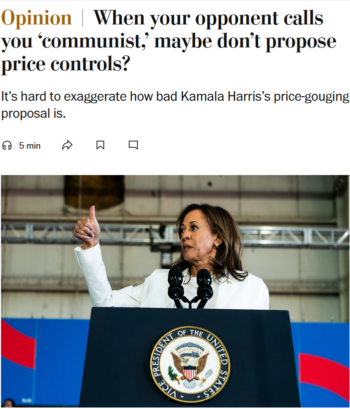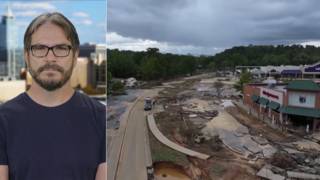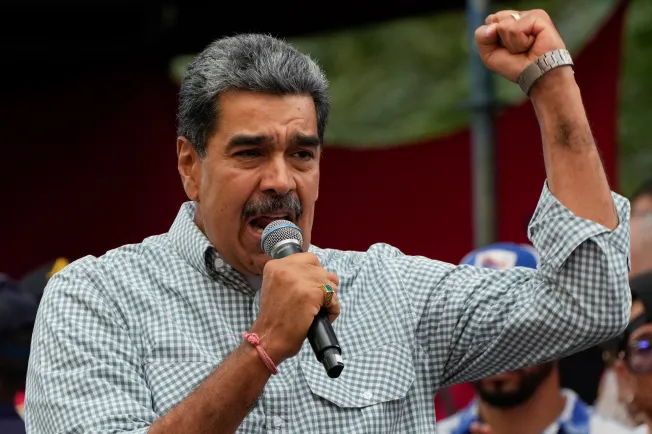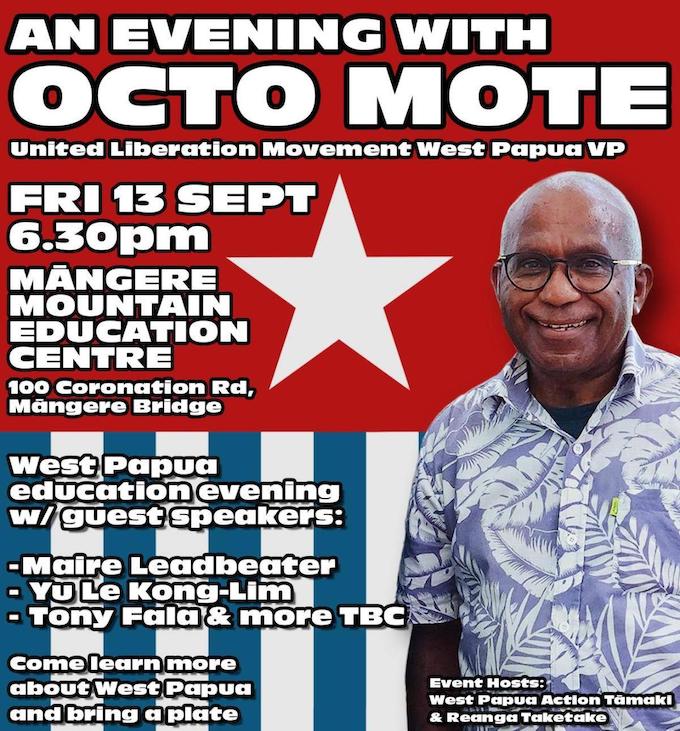Debates over whether Democratic presidential candidate Kamala Harris’s economic proposals constitute Communist price controls or merely technocratic consumer protections are obscuring a more insidious thread within corporate media. In coverage of Harris’s anti-price-gouging proposal, it’s taken for granted that price inflation, especially in the grocery sector, is an organic and unavoidable result of market forces, and thus any sort of intervention is misguided at best, and economy-wrecking at worst.
In this rare instance where a presidential hopeful has a policy that is both economically sound and popular, corporate media have fixated on Harris’s proposal as supposedly misguided. To dismiss any deeper discussion of economic phenomena like elevated price levels, and legislation that may correct them, media rely on an appeal to “basic economics.” If the reader were only willing to crack open an Econ 101 textbook, it would apparently be plain to see that the inflation consumers experienced during the pandemic can be explained by abstract and divinely influenced factors, and thus a policy response is simply inappropriate.
Comrade Kamala?

When bad faith critics call Harris “Communist,” maybe don’t misrepresent her policies as “price controls”? (Washington Post, 8/15/24)
For all the hubbub about Harris’s proposal, the actual implications of anti-price-gouging legislation are fairly unglamorous. Far from price controls, law professor Zephyr Teachout (Washington Monthly, 9/9/24) noted that anti-price-gouging laws
allow price increases, so long as it is due to increased costs, but forbid profit increases so that companies can’t take advantage of the fear, anxiety, confusion and panic that attends emergencies.
Teachout situated this legislation alongside rules against price-fixing, predatory pricing and fraud, laws which allow an effective market economy to proliferate. As such, states as politically divergent as Louisiana and New York have anti-price-gouging legislation on the books, not just for declared states of emergency, but for market “abnormalities.”
But none of that matters when the media can run with Donald Trump’s accusation of “SOVIET-style price controls.” Plenty of unscrupulous outlets have had no problem framing a consumer protection measure as the first step down the road to socialist economic ruin (Washington Times, 8/16/24; Washington Examiner, 8/20/24; New York Post, 8/25/24; Fox Business, 9/3/24). Even a Washington Post piece (8/19/24) by columnist (and former G.W. Bush speechwriter) Marc Thiessen described Harris’s so-called “price controls” as “doubling down on socialism.”
What’s perhaps more concerning is centrist or purportedly liberal opinion pages’ acceptance of Harris’s proposal as outright price controls. Catherine Rampell, writing in the Washington Post (8/15/24), claimed anti-price-gouging legislation is “a sweeping set of government-enforced price controls across every industry, not only food…. At best, this would lead to shortages, black markets and hoarding.” Rampell didn’t go as far as to call Harris a Communist outright, but coyly concluded: “If your opponent claims you’re a ‘Communist,’ maybe don’t start with an economic agenda that can (accurately) be labeled as federal price controls.”
Donald Boudreaux and Richard McKenzie mounted a similar attack in the Wall Street Journal (8/22/24), ripping Harris for proposing “national price controls” and thus subscribing to a “fantasy economic theory.” Opinion writers in the Atlantic (8/16/24), the New York Times (8/19/24), LA Times (8/20/24), USA Today (8/21/24), the Hill (8/23/24) and Forbes (9/3/24) all uncritically regurgitated the idea that Harris’s proposal amounts to price controls. By accepting this simplistic and inaccurate framing, these political taste-makers are fueling the right-wing idea that Harris represents a vanguard of Communism.
To explicitly or implicitly accept that Harris’s proposal amounts to price controls, or even socialism, is inaccurate and dangerous. Additionally, many of the breathless crusades against Harris made use of various cliches to encourage the reader to not think deeper about how prices work, or what policy solutions might exist to benefit the consumer.
Just supply and demand
“According to the Econ 101 model of prices and supply, when a product is in shortage, its price goes up to bring quantity demanded in line with quantity supplied.” This is the wisdom offered by Josh Barro in the Atlantic (8/16/24), who added that “in a robustly competitive market, those profit margins get forced down as supply expands. Price controls inhibit that process and are a bad idea.” He chose not to elaborate beyond the 101 level.
The Wall Street Journal (8/20/24) sought the guidance of Harvard economist Greg Mankiw, who is indeed the author of the most widely used economics textbook in US colleges. He conceded that price intervention could be warranted in markets with monopolistic conditions. However, the Journal gently explained to readers, “the food business isn’t a monopoly—most people, but not all, have the option of going to another store if one store raises its prices too much.” Mankiw elaborated: “Our assumption is that firms are always greedy and it is the forces of competition that keeps prices close to cost.”
Rampell’s opinion piece in the Washington Post (8/15/24) claimed that, under Harris’s proposal, “supply and demand would no longer determine prices or profit levels. Far-off Washington bureaucrats would.” Rampell apparently believes (or wants readers to believe) that grocery prices are currently set by nothing more than supply and demand.
The problem is that the grocery and food processing industries are not competitive markets. A 2021 investigation by the Guardian (7/14/21) and Food and Water Watch showed the extent to which food production in the United States is controlled by a limited group of corporations:
A handful of powerful companies control the majority market share of almost 80% of dozens of grocery items bought regularly by ordinary Americans…. A few powerful transnational companies dominate every link of the food supply chain: from seeds and fertilizers to slaughterhouses and supermarkets to cereals and beers.
While there is no strict definition for an oligopolistic market, this level of market concentration enables firms to set prices as they wish. Reporting by Time (1/14/22) listed Pepsi, Kroger, Kellogg’s and Tyson as examples of food production companies who boasted on the record about their ability to increase prices beyond higher costs during the pandemic.
Noncompetitive market conditions are also present farther down the supply chain. Nationally, the grocery industry is not quite as concentrated as food production (the pending Kroger/Albertsons merger notwithstanding). However, unlike a food retailer, consumers have little geographical or logistical flexibility to shop around for prices.
The USDA Economic Research Service has found that between 1990 and 2019, retail food industry concentration has increased, and the industry is at a level of “high concentration” in most counties. Consumers in rural and small non-metro counties are most vulnerable to noncompetitive market conditions.
The Federal Trade Commission pointed the finger at large grocers in a 2024 report. According to the FTC, grocery retailers’ revenue increases outstripped costs during the pandemic, resulting in increased profits, which “casts doubt on assertions that rising prices at the grocery store are simply moving in lockstep with retailers’ own rising costs.” The report also accused “some larger retailers and wholesalers” of using their market position to gain better terms with suppliers, causing smaller competitors to suffer.
Unchecked capitalism is good, actually
If one still wishes to critique Harris’s proposal, taking into account that the food processing and retail industries are not necessarily competitive, the next best argument is that free-market fundamentalism is good, and Harris is a villain for getting in the way of it.
Former Wall Street Journal reporter (and mutual fund director) Roger Lowenstein took this tack in a New York Times guest essay (8/27/24). He claimed Harris’s anti-price-gouging proposal and Donald Trump’s newly proposed tariff amount to “equal violence to free-market principles.” (The only violence under capitalism that seems to concern Lowenstein, apparently, is that done toward free enterprise.)
Lowenstein critiqued Harris for threatening to crack down on innocent, opportunistic business owners he likened to Henry Ford (an antisemite and a union-buster), Steve Jobs (a price-fixing antitrust-violator, according to the Times—5/2/14) and Warren Buffett (an alleged monopolist)–intending such comparisons as compliments, not criticisms. Harris and Trump, he wrote, are acting
as if production derived from central commands rather than from thousands of businesses and millions of individuals acting to earn a living and maximize profits.
If this policy proposal is truly tantamount to state socialism, in the eyes of Lowenstein, perhaps he lives his life constantly lamenting the speed limits, safety regulations and agricultural subsidies that surround him. Either that, or he is jumping at the opportunity to pontificate on free market utopia, complete with oligarchs and an absent government, with little regard to the actual policy he purports to critique.
A problem you shouldn’t solve

Roger Lowenstein (NYT, 8/27/24) informed unenlightened readers that high food prices are “a problem that no longer exists.”
Depending on which articles you choose to read, inflation is alternately a key political problem for the Harris campaign, or a nonconcern. “Perhaps Ms. Harris’s biggest political vulnerability is the run-up in prices that occurred during the Biden administration,” reported the New York Times (9/10/24). The Washington Post editorial board (8/16/24) also acknowledged that Biden-era inflation is “a real political issue for Ms. Harris.”
Pieces from both of these publications have also claimed the opposite: Inflation is already down, and thus Harris has no reason to announce anti-inflation measures. Lowenstein (New York Times, 8/27/24) claimed that the problem of high food prices “no longer exists,” and Rampell (Washington Post, 8/15/24) gloated that the battle against inflation has “already been won,” because price levels have increased only 1% in the last year. The very same Post editorial (8/16/24) that acknowledged inflation as a liability for Harris chided her for her anti-price-gouging proposal, claiming “many stores are currently slashing prices.”
It is true that the inflation rate for groceries has declined. However, this does not mean that Harris’s proposals are now useless. This critique misses two key points.
First, there are certain to be supply shocks, and resultant increases in the price level, in the future. COVID-19 was an unprecedented crisis in its breadth; it affected large swathes of the economy simultaneously. However, supply shocks happen in specific industries all the time, and as climate change heats up, there is no telling what widespread crises could envelop the global economy. As such, there is no reason not to create anti-price-gouging powers so that Harris may be ready to address the next crisis as it happens.
Second, the price level of food has stayed high, even as producer profit margins have increased. As Teachout (Washington Monthly, 9/9/24) explained, anti-price-gouging legislation is tailored specifically to limit these excess profits, not higher prices. While food prices will inevitably react to higher inflation rates, the issue Harris seeks to address is the bad-faith corporations who take advantage of a crisis to reap profits.
Between January 2019 and July 2024, food prices for consumers increased by 29%. Meanwhile, profits for the American food processing industry have more than doubled, from a 5% net profit margin in 2019 to 12% in early 2024. Concerning retailers, the FTC found that
consumers are still facing the negative impact of the pandemic’s price hikes, as the Commission’s report finds that some in the grocery retail industry seem to have used rising costs as an opportunity to further raise prices to increase their profits, which remain elevated today.
In other words, Harris’s proposal would certainly apply in today’s economy. While the price level has steadied for consumers, it has declined for grocers. This is price gouging, and this is what Harris seeks to end.
Gimmicks and pandering
Once the media simultaneously conceded that inflation is over, and continued to claim inflation is a political problem, a new angle was needed to find Harris’s motivation for proposing such a controversial policy. What was settled on was an appeal to the uneducated electorate.
Barro’s headline in the Atlantic (8/16/24) read “Harris’s Plan Is Economically Dumb But Politically Smart.” He claimed that the anti-price-gouging plan “likely won’t appeal to many people who actually know about economics,” but will appeal to the voters, who “in their infinite wisdom” presumably know nothing about the economic realities governing their lives.
The Washington Post editorial board (8/16/24) wrote that Harris, “instead of delivering a substantial plan…squandered the moment on populist gimmicks.” Steven Kamin, writing in the Hill (8/23/24), rued “what this pandering says about the chances of a serious discussion of difficult issues with the American voter.”
Denouncing Harris’s policies as pandering to the uneducated median voter, media are able to acknowledge the political salience of inflation while still ridiculing Harris for trying to fix it. By using loaded terms like “populist,” pundits can dismiss the policy without looking at its merits, never mind the fact that the proposal has the support of experts. As Paul Krugman (New York Times, 8/19/24) pointed out in relation to Harris’s proposal, “just because something is popular doesn’t mean that it’s a bad idea.”
If a publication wishes to put the kibosh on a political idea, it is much easier to dismiss it out of hand than to legitimately grapple with the people and ideas that may defend it. One of the easiest ways to do this is to assume the role of the adult in the room, and belittle a popular and beneficial policy as nothing more than red meat for the non–Ivy League masses.
Inflation and economic policy are complicated. Media coverage isn’t helping.
Perhaps the second easiest way to dismiss a popular policy is to simply obfuscate the policy and the relevant issues. The economics behind Kamala Harris’s proposed agenda are “complicated,” we are told by the New York Times (8/15/24). This story certainly did its best to continue complicating the economic facts behind the proposal. Times reporters Jim Tankersley and Jeanna Smialek wrote that
the Harris campaign announcement on Wednesday cited meat industry consolidation as a driver of excessive grocery prices, but officials did not respond on Thursday to questions about the evidence Ms. Harris would cite or how her proposal would work.

Has the meatpacking industry become more consolidated, contributing to “excessive grocery prices”? The New York Times (8/15/24) couldn’t be bothered to do basic reporting like checking the USDA website—which, in addition to showing clear consolidation, also noted that evidence suggests there have been “increased profits for meatpackers” since 2016.
Generally, when the word “but” is used, the following clause will refute or contradict the prior. However, the Times chose not to engage with Harris’s concrete example and instead moved on to critiquing the vagueness of her campaign proposal. The Times did the reader a disservice by not mentioning that the meat industry has in fact been consolidating, to the detriment of competitive market conditions and thus to the consumer’s wallet. Four beef processing companies in the United States control 85% of the market, and they have been accused of price-fixing and engaging in monopsonistic practices (Counter, 1/5/22). However to the Times, the more salient detail is the lack of immediate specificity of a campaign promise.
Another way to obfuscate the facts of an issue is to only look at one side of the story. A talking point espoused by commentators like Rampell is that the grocery industry is operating at such thin margins that any decrease in prices would bankrupt them (Washington Post, 8/15/24). Rampell wrote:
Profit margins for supermarkets are notoriously thin. Despite Harris’s (and [Elizabeth] Warren’s) accusations about “excessive corporate profits,” those margins remained relatively meager even when prices surged. The grocery industry’s net profit margins peaked at 3% in 2020, falling to 1.6% last year.
This critique is predicated on Harris’s policies constituting price controls. Because Harris is proposing anti-price-gouging legislation, the policy would only take effect when corporations profiteer under the cover of rising inflation. If they are truly so unprofitable, they have nothing to fear from this legislation.
The other problem with this point is that it’s not really true. The numbers Rampell relied on come from a study by the Food Marketing Institute (which prefers to be called “FMI, the Food Industry Association”), a trade group for grocery retailers. The FTC, in contrast, found that
food and beverage retailer revenues increased to more than 6% over total costs in 2021, higher than their most recent peak, in 2015, of 5.6%. In the first three-quarters of 2023, retailer profits rose even more, with revenue reaching 7% over total costs.
Yale economist Ernie Tedeschi (Wall Street Journal, 8/20/24) also “points out that margins at food and beverage retailers have remained elevated relative to before the pandemic, while margins at other retailers, such as clothing and general merchandise stores, haven’t.” In other words, if you look at sources outside of the grocery industry, it turns out the picture for grocers is a little rosier.
British economist Joan Robinson once wrote that the purpose of studying economics is primarily to avoid being deceived by economists. It takes only a casual perusal of corporate media to see that, today, she is more right than ever.
This content originally appeared on FAIR and was authored by Paul Hedreen.
This post was originally published on Radio Free.













